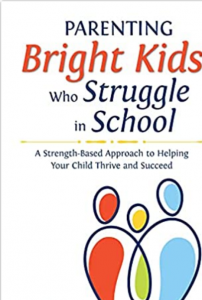Is Your Child Lonely?
 Over two-thirds of the 11-17 year olds surveyed by Mental Health America felt stressed out about loneliness. Read more ›
Over two-thirds of the 11-17 year olds surveyed by Mental Health America felt stressed out about loneliness. Read more ›
 Over two-thirds of the 11-17 year olds surveyed by Mental Health America felt stressed out about loneliness. Read more ›
Over two-thirds of the 11-17 year olds surveyed by Mental Health America felt stressed out about loneliness. Read more ›
 When kids are diagnosed with a learning disability we naturally worry about how it will affect their school performance. What we often don’t think about, but should, is how having a learning disability may affect children emotionally. Read more ›
When kids are diagnosed with a learning disability we naturally worry about how it will affect their school performance. What we often don’t think about, but should, is how having a learning disability may affect children emotionally. Read more ›
 School avoidance has become a major issue, exacerbated by long periods of distance learning and isolation. What causes school avoidance? How does it show up in kids and how can parents effectively support their children in getting back to the classroom? Read more ›
School avoidance has become a major issue, exacerbated by long periods of distance learning and isolation. What causes school avoidance? How does it show up in kids and how can parents effectively support their children in getting back to the classroom? Read more ›
 Let’s face it: parenting is hard. As a parent or caregiver, your goal is to raise your children to be healthy, happy, successful adults, but the road to get there is filled with twists and turns. It’s hard to know if you are making the right choices along the way, and the path may look different for each child. Read more ›
Let’s face it: parenting is hard. As a parent or caregiver, your goal is to raise your children to be healthy, happy, successful adults, but the road to get there is filled with twists and turns. It’s hard to know if you are making the right choices along the way, and the path may look different for each child. Read more ›
 Parents seeking therapy for teenagers who self-harm or suffer from anxiety, depression or suicidal thoughts face an imposing thicket of treatment options and acronyms: cognitive behavioral therapy (C.B.T.), parent management training (P.M.T.), collaborative assessment and management of suicidality (CAMS), acceptance and commitment therapy (ACT) and others. Read more ›
Parents seeking therapy for teenagers who self-harm or suffer from anxiety, depression or suicidal thoughts face an imposing thicket of treatment options and acronyms: cognitive behavioral therapy (C.B.T.), parent management training (P.M.T.), collaborative assessment and management of suicidality (CAMS), acceptance and commitment therapy (ACT) and others. Read more ›
 Fear of going to school was first called “school phobia” in 1941 (Johnson et al.,1941). Today it is known as school refusal or school avoidance, defined as: when a child does not fully attend school and has no reasonable or justifiable circumstances for the absence. Read more ›
Fear of going to school was first called “school phobia” in 1941 (Johnson et al.,1941). Today it is known as school refusal or school avoidance, defined as: when a child does not fully attend school and has no reasonable or justifiable circumstances for the absence. Read more ›
 The transition back to school each fall is challenging for many families. But some children and teens feel so much emotional distress that they may repeatedly balk at attending school or staying there — a problem known as school refusal, or school avoidance if it occurs consistently. Read more ›
The transition back to school each fall is challenging for many families. But some children and teens feel so much emotional distress that they may repeatedly balk at attending school or staying there — a problem known as school refusal, or school avoidance if it occurs consistently. Read more ›

School refusal is a term used to describe the signs of anxiety a school-aged child has and his or her refusal to go to school. It is also called school avoidance or school phobia. It can be seen in different types of situations. Read more ›
 School avoidance – sometimes called school refusal or school phobia – is not uncommon and occurs in as many as 5% of children. These children may outright refuse to attend school or create reasons why they should not go. Read more ›
School avoidance – sometimes called school refusal or school phobia – is not uncommon and occurs in as many as 5% of children. These children may outright refuse to attend school or create reasons why they should not go. Read more ›
 Parenting Bright Kids Who Struggle in School guides parents through the challenging and often unfamiliar landscape of raising kids who have been labeled with learning differences, including dyslexia, ADHD, autism, sensory processing disorder, and more. Read more ›
Parenting Bright Kids Who Struggle in School guides parents through the challenging and often unfamiliar landscape of raising kids who have been labeled with learning differences, including dyslexia, ADHD, autism, sensory processing disorder, and more. Read more ›